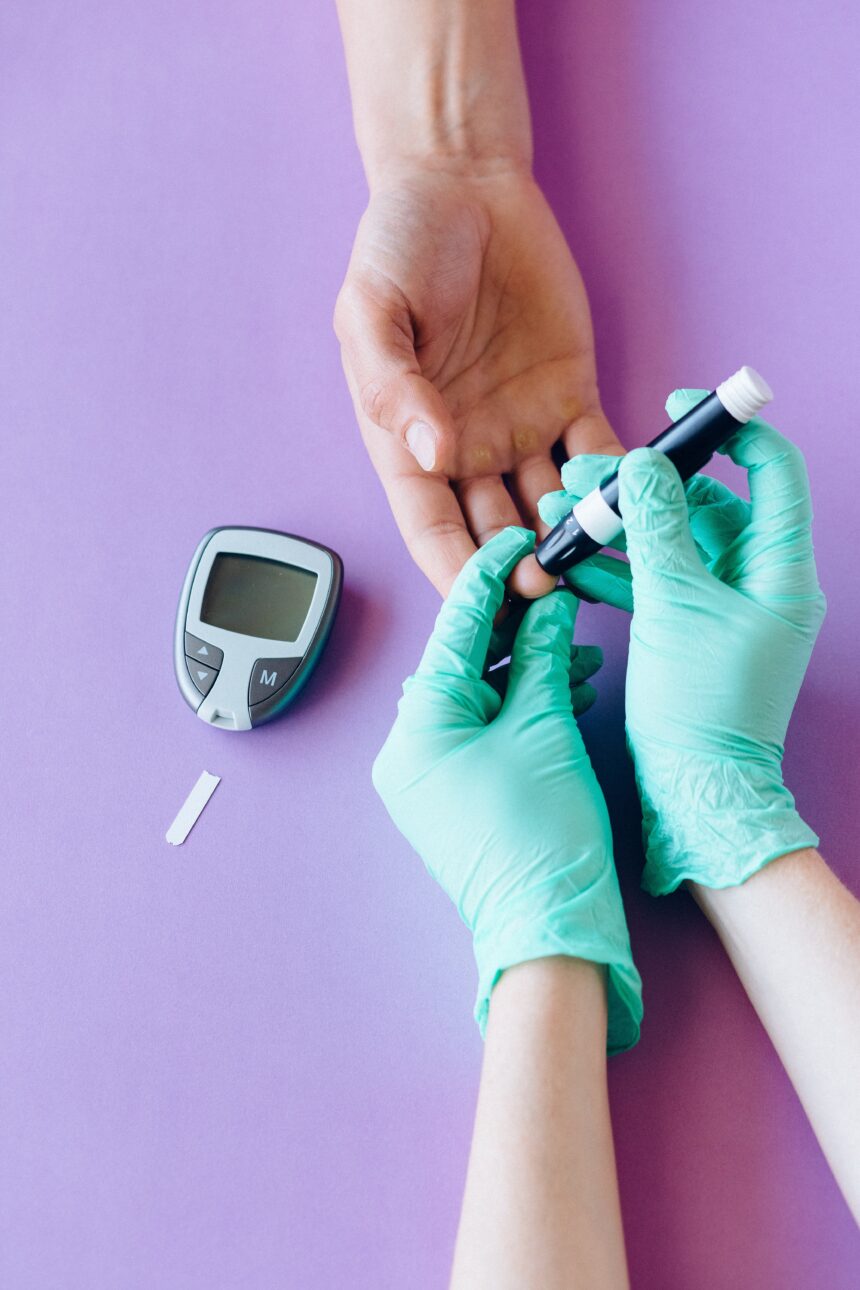Blood sugar level also known as blood glucose level is the amount of sugar or glucose in your blood. When you consume food, your body breaks down carbohydrates into glucose, which enters the bloodstream, insulin is then released by the pancreas to help cells absorb glucose for energy. Blood sugar levels are expressed in milligrams per deciliter (mg/dL) or millimoles per liter (mmol/L) which are influenced by various factors like diet, personal activities, and your body’s natural processes.
Blood sugar levels can be measured at different times, such as after meals, fasting, and after a long period. Normal blood sugar levels done after an overnight fast usually range between 70-100 mg/dL (3.9-5.6 mmol/L). Postprandial blood sugar measures blood sugar levels 1-2 hours after eating, normal levels range below 140mg/dL (7.8 mmol/L). Glycated Hemoglobin is a test that provides blood sugar levels over the past 2-3 months, it is expressed in percentage, levels below 5.7 are generally considered normal. Here are five (5) ways to balance blood sugar levels through diet.
- Carbohydrates; it is important to opt for whole grains like brown rice, whole wheat, and quinoa, as they have lower glycemic index and provide sustained energy. It is also important to reduce the intake of sugary snacks, drinks, and refined carbohydrates, as they can cause a spike in blood sugar.
- Proteins; include lean protein sources like fish, tofu, and legumes in your diet, they help stabilize blood sugar levels and promote satiety.
- Sugar; avoid processed foods with sugars, also check labels for terms like sucrose, high fructose corn syrup, or other sweeteners, if you must consume sugar use natural sweeteners like honey or maple syrup.
- Fiber; foods rich in soluble fiber such as oats, beans, and fruits can slow down digestion and help regulate blood sugar. It is also vital to incorporate vegetables for added fiber and nutrients.
- Portion control; space meals evenly throughout the day to avoid prolonged periods of eating which can lead to blood sugar fluctuations, also, you can eat smaller more frequent meals to prevent overeating and better control blood sugar.
MUST READ; 7 Self-Care Rituals
Regular monitoring, and maintaining a healthy lifestyle are important for managing blood sugar levels, and avoiding conditions like diabetes.


